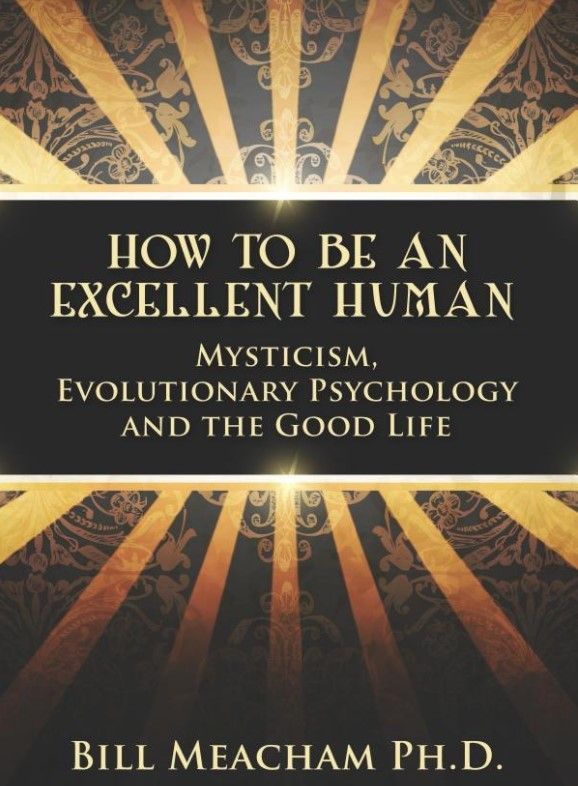On Faith
The New Atheists – new because they proselytize their atheism quite as fervently as some Christians proselytize their Christianity – speak disparagingly of faith, by which they mean belief without evidence or even despite evidence to the contrary. This is one of the things they get right. Faith in this sense is unworthy of a True Human Being. Faith in this sense is mere opinion. We have the power to think clearly and accurately about anything we choose to find out about; it’s one of our great gifts as human beings. Not to use this faculty is to live in a diminished state of being. But that is not all there is to faith.
There is another sense of the word “faith” that is much more positive and productive. That is the determination to cleave to what we know is true despite painful feelings that would lead us to abandon it. In this sense, faith is like remembrance. Once we know something to be true – because, for instance, we have experienced evidence for it, or because we have carefully thought it out for ourselves – it is a manifestation of our power, not our vulnerability to distress, to continue to believe it despite painful emotion, or despite a temporary lack of evidence.
If faith is taken in the first sense, nothing in one’s path toward wisdom is to be taken on faith. We ask everyone to think for themselves and to consider the evidence and draw their own conclusions. If faith is taken in the second sense, it is not at all surprising that people’s faith in something they have discovered and in themselves grows through time.
There is a third state, in between these two meanings of “faith.” Many schools of personal transformation ask people just starting their training to at least suspend their disbelief. Such schools typically make assertions about human nature: that people are inherently loving, cooperative, powerful, decisive, zestful and intelligent, for instance, or that each of us is in essence of being divine, or that we each have the power to overcome our limitations and break the chains of painful and destructive habit. Such schools ask people to act as if they are in fact as the teachings say. Teachers are confident that – along with doing the prescribed practices – doing so will elicit experiences that confirm the teachings and a re-evaluation of beliefs to the contrary. This is like priming the pump. Such schools do not ask people to believe blindly, without evidence. They expect that beginning students have not yet had the experience to fully incorporate the teachings into their daily living, although they assume that everyone has had at least some glimpse of reality, somewhere in their past. They ask people to take some actions that will lead to their finding the truth without first being fully convinced of that truth. They don’t ask for people’s faith in a set of beliefs, but do ask for trust that the process will have some benefit. Or, if not trust, then at least a willingness to give it a try.
And finally there is another sense of faith, which is confidence. One might say to someone unsure of themselves, “I have faith in you,” meaning that one has confidence that the person is capable of achieving their goal. One can say this because one is able to see in them something that they cannot. Faith in this sense is very useful, because often another’s confidence in us gives us the confidence in ourselves that we need. And, most often, this kind of faith is not without evidence.
Faith as belief without proof has been the instrument of oppressive society. Faith as confidence and determination are instruments of liberation.
On Faith, Part 2: The Right To Believe
A comment on my previous post about Faith asks me to consider religious faith, particularly that which arises from a conversion experience. The faith of the convert comes from overwhelming personal experience, the experience of truth revealed, of obstacles overcome, by the help of a power beyond ourselves. Isn’t this a special kind of faith?
Many of us have had such experiences, and many others haven’t. Perhaps some of those who haven’t wish wistfully for the kind of certainty that the religious faithful have, and of course many view such certainty with disdain. I have already noted that as philosophers, lovers of wisdom, we must not take such peak experiences uncritically. We must think about them, see whether their conceptual content makes sense, and observe and evaluate the effects they have on our lives. So how can we determine whether it makes sense to base important decisions on such experiences? If you have had such an experience, what authorizes you, from a logical, philosophical perspective, to believe that it is veridical, that it tells you something genuine about reality?
First of all, what does it tell you? In broad terms it tells you that a Higher Power exists, manifests itself in a person-like way, and has some benevolent interest in you. Or at least that it is possible for you to relate to that Higher Power in such a way as to be beneficial to yourself. (I am deliberately being a bit vague in my use of the term “Higher Power” here, as the term “God” has too many meanings and too much conceptual baggage to be useful. I want to include the Buddhist Void, the Taoist Way and the Gnostic All, as well as such rather more obvious candidates as the Christian, Jewish and Islamic God, the Wiccan Goddess and those known throughout history by names such as Thor, Zeus, Ishtara, Vishnu, Prajapati, Kali and many others.) What would count as evidence for or against the assertion that such a Higher Power exists?
Notoriously, science fails. There are no public, replicable experiments that can prove – or disprove – the existence of a Higher Power. From the objective, scientific point of view the concept of the existence of a Higher Power is either meaningless (because not disprovable) or an unneeded hypothesis (because all the physical facts can be accounted for without it).
But not all evidence is public, and not all facts are physical. Evidence can be private, or subjective, and facts can be mental. One can perceive the effects of something one may call a Higher Power in one’s own life, and indeed humans seem to be prone to do so. Here are some examples:
- You may perceive portents and signs, patterns of synchronicity that seem to have greater significance than mere randomness.
- You may experience the presence of a Higher Power as a result of practices that alter experience such as meditation, chanting, fasting, ceremony and ritual, ingestion of certain substances, etc.
- You may experience responses to prayer and hence have a sense of a personal relationship with a Higher Power.
This last is most important. If you adopt a stance of relating to your idea of a Higher Power as if it exists and is person-like, and you can plausibly interpret events as embodying the actions of that person-like being responding to you, and particularly if those actions are to your benefit, then you really do have compelling evidence.
William James, the famous American psychologist and philosopher, is instructive here. In his essay “The Will to Believe”[1], he observes that sometimes we are faced with decisions that really matter to us, that we cannot just ignore, that are of momentous significance, and that cannot be decided on the basis of logic or public evidence alone. In such situations it is more important to find truth than to avoid error. Our “passional nature,” as he puts it, is persuaded by such subjective evidence; and it is not only acceptable but advantageous and appropriate to allow that passional nature to prevail.
Atheists, particularly the New Atheists who so vociferously advocate their atheism, would have us deny that there is a Higher Power because we lack scientific certainty of its existence. To this James replies:
… if we are empiricists, if we believe that no bell in us tolls to let us know for certain when truth is in our grasp, then it seems a piece of idle fantasticality to preach so solemnly our duty of waiting for the bell.[2]
Science never claims to have the final truth. There is always the possibility of finding conflicting evidence for one’s hypothesis. That’s what he means by saying that no bell tolls within us. All we know is how well the hypothesis works out in our experience. None of the types of evidence I list above prove the existence of a Higher Power publicly, but in the absence of scientific proof you may choose to believe on the basis of subjective evidence. If the effects of such belief are beneficial – if, for instance, you are happier and function better as a result of such belief than without it – then you are justified having faith in a Higher Power.
You are not justified, however, in imposing your faith on others. Your evidence is not objectively authoritative; it is valid only for you and others who have had similar experiences. It is certainly good to associate with those others voluntarily, but don’t be so quick to preach to the unconverted. Instead live by example. The Sufi mystic says that your truth can’t be taught, it can only be caught.
And if you have not had such evidence, if you are not one of the faithful, don’t be so quick to disparage those who are. Judge them not by the standards of scientific evidence but by the quality of their lives. If they are shrill, judgmental and inflexible – and particularly if their actions bely what they profess – then you’d best avoid them. But if they are loving and kind and helpful, if they not only aspire but in some measure succeed in promoting love, harmony and beauty, then find out what has led them to live such a life. In either case there is one bit of advice from a religious tradition that is applicable: By their fruits ye shall know them.[3]
——————–
William James, “The Will to Believe,” in The Will To Believe And Other Essays On Popular Philosophy (New York: Dover Publications, 1956), pp. 1-31. Available online at http://educ.jmu.edu//~omearawm/ph101willtobelieve.html as of 7 January 2011, and archived at http://www.bmeacham.com/whatswhat/OP/James_WillToBelieve.htm. ↩︎
Ibid, p. 30. ↩︎
Christian Bible, American Standard Version, Matthew 7:16. ↩︎

How To Be An Excellent Human
Mysticism, Evolutionary Psychology and the Good Life by Bill Beacham, Ph.D.

